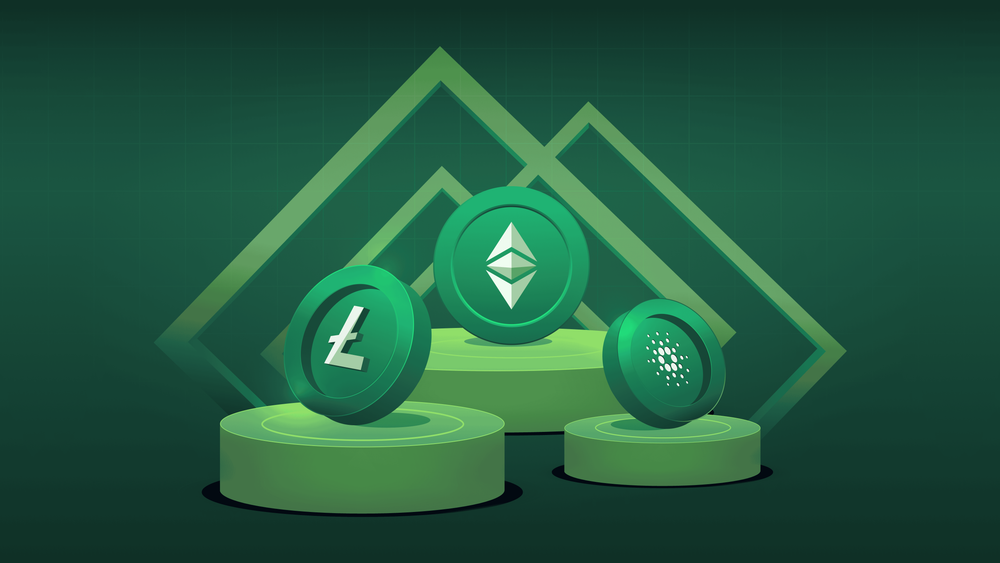Altcoins are all the cryptocurrencies that are not Bitcoin but have their own value and purpose within the crypto ecosystem. They are often developed to improve or diversify the functionalities of digital money. In this article, we explore what altcoins are, how they work, and what makes them different from Bitcoin.

When people talk about cryptocurrencies, the first name that comes to mind is Bitcoin. It was the first decentralized digital currency, and its influence on the financial world is unquestionable. However, there are thousands of other cryptocurrencies that are not Bitcoin. These are called altcoins, or "alternative coins." These coins have different purposes and are designed to offer solutions ranging from faster transactions to the implementation of smart contracts.
In this blog, we explain what altcoins are, how they emerged, and why they are relevant in the cryptocurrency ecosystem.
The term "altcoin" is the combination of "alternative" and "coin", literally meaning "alternative coins". Altcoins include all cryptocurrencies that are not Bitcoin and have evolved over time.
Some altcoins aim to improve certain aspects of Bitcoin, such as speed or transaction costs, while others introduce entirely new features, such as the ability to run smart contracts or facilitate the creation of decentralized applications.
Litecoin (LTC) Litecoin was launched in 2011 by Charlie Lee, a former Google engineer. It was designed to offer faster transaction times than Bitcoin and with a larger coin supply limit. Litecoin has been considered Bitcoin's "silver" to its "gold".
Ethereum (ETH) Ethereum is not just an altcoin, but a complete platform for creating decentralized applications (dApps) and smart contracts. Created by Vitalik Buterin in 2015, Ethereum has become the second most popular cryptocurrency after Bitcoin.
Ripple (XRP) Ripple was designed to facilitate fast and cheap transactions between financial institutions. Unlike other cryptocurrencies, Ripple is not decentralized and operates through a network of banks and financial companies.
Cardano (ADA) Cardano is a third-generation blockchain platform that aims to solve the scalability, interoperability, and sustainability issues that other blockchains like Bitcoin and Ethereum face. It was created by Charles Hoskinson, co-founder of Ethereum.
Polkadot (DOT) Polkadot is a platform that allows interoperability between different blockchains, enabling them to connect and work together more efficiently. It was created by Gavin Wood, another co-founder of Ethereum.
Stablecoins Stablecoins are a type of altcoin designed to minimize volatility. These coins are backed by traditional assets, such as the US dollar, and their value remains relatively constant. Popular examples include Tether (USDT) and USD Coin (USDC).
Diversification of the crypto ecosystem Altcoins are crucial for diversification within the cryptocurrency ecosystem. While Bitcoin is widely recognized as a store of value, altcoins have allowed for the exploration of new technologies and use cases, such as smart contracts, decentralized applications, and scalability solutions.
Innovation and new features While Bitcoin remains focused mainly on value storage, altcoins have enabled the development of new applications. For example, Ethereum opened the door to smart contracts, which has led to the creation of DeFi (decentralized finance) projects and NFTs (non-fungible tokens).
Specific solutions to specific problems Some altcoins, such as Litecoin, emerged as a response to Bitcoin's limitations, such as transaction times. Others, such as Ripple, were created with the aim of improving international transfers, specifically for banks and businesses.
Greater accessibility and investment opportunities Altcoins offer investors more options to explore. While Bitcoin may be inaccessible to some due to its price, altcoins are usually cheaper, providing a more accessible entry point for those looking to invest in cryptocurrencies.
While altcoins present many opportunities, they also carry certain risks:
High volatility Altcoins tend to be more volatile than Bitcoin, meaning their prices can fluctuate significantly over short periods of time.
Untested projects Many altcoins are relatively new or experimental projects. While some of these projects may offer disruptive innovations, there is also the risk that they may not reach their full potential.
Regulatory risk Since many altcoins are focused on decentralized solutions or alternative financial systems, they are under scrutiny from regulators. Changes in cryptocurrency regulations could impact the value and viability of certain altcoins.
Altcoins have been an essential part of the growth and evolution of the cryptocurrency ecosystem. While Bitcoin remains the most important cryptocurrency, altcoins have opened up new possibilities with technological innovations and specific uses. From Ethereum and its ability to execute smart contracts to stablecoins and their applications in finance, altcoins have proven to be a driving force for the advancement of blockchain technology.
While altcoins offer great opportunities, they also come with risks that investors must consider before diving into their world.
Stay updated with the latest news, tips, and exclusive information